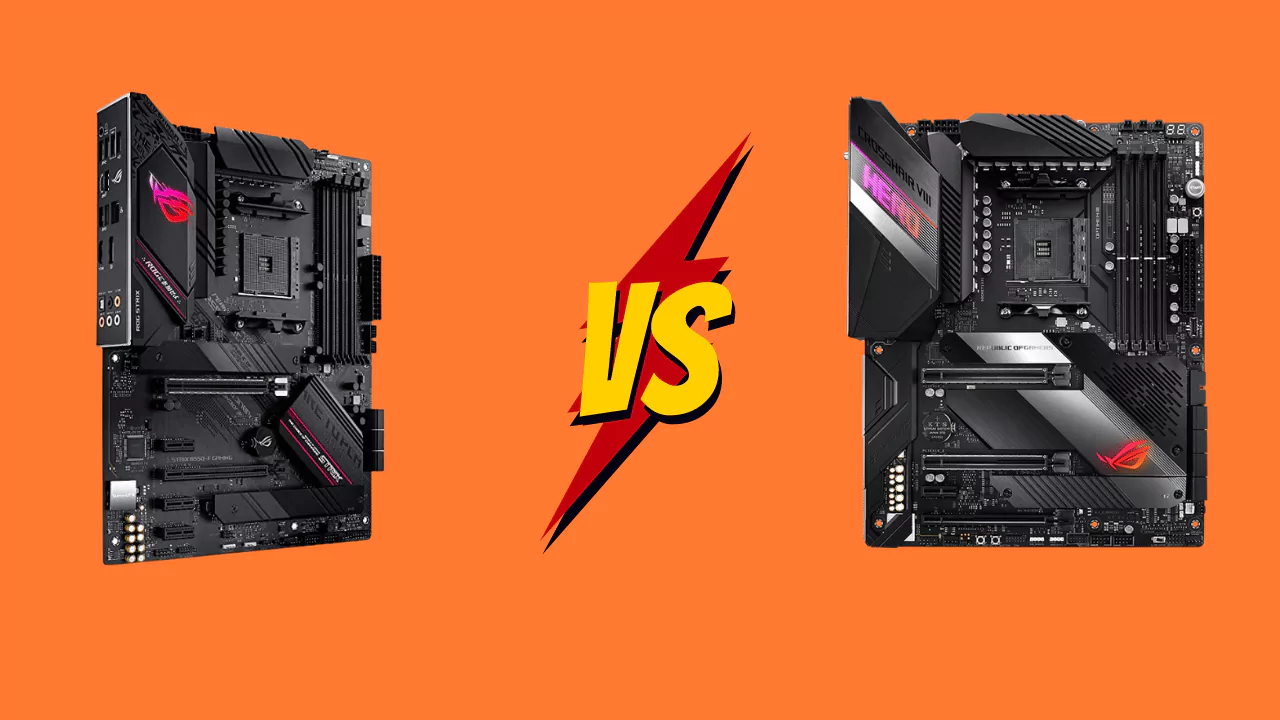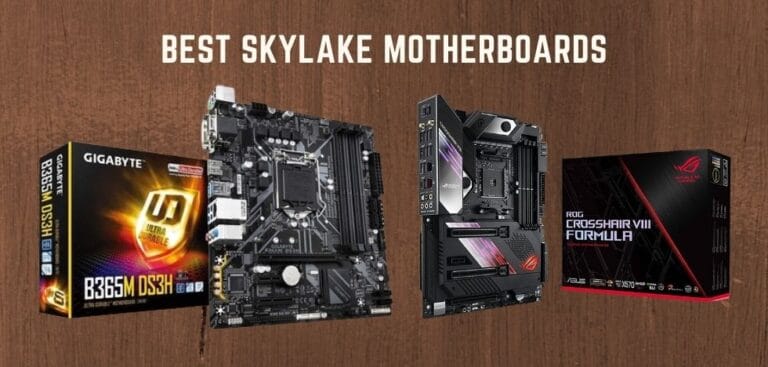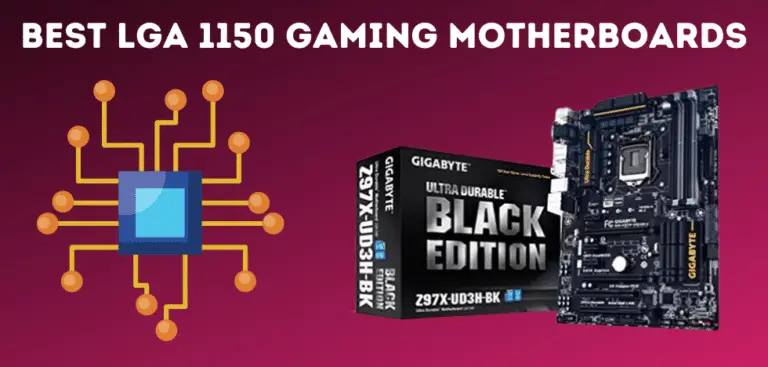In the tech market, AMD motherboards are trending, and the current generation is obsessed with two variants – AMD B550 vs. X570 Motherboards. These two are popular mainstream chipsets; the B550 is a midrange chipset, whereas the X570 is on the higher end.
Basically, a chipset is a physical chip that is fitted in your CPU, and it allows RAM, graphics card, and other additional hardware to communicate and connect with each other. Based on the chipset, you get to decide how your system will perform, how you get to view the videos, and how fast the RAM will run. It also decides the capability of the USB ports and how many PCIe lanes are supported.
To understand if AMD B550 vs. X570 Motherboards would suit you, you need to break down both boards in terms of performance, support, and connectivity. Also, do consider editing and gaming needs when comparing these powerful boards.
Let’s walk you through a more vivid discussion and see which board grabs your attention.
The difference between AMD B550 vs X570 Motherboards
Let’s get to the different factors that differentiate AMD B550 and X570 Motherboards from each other.
Compatibility
Every type of motherboard is not going to support every type of CPU. Based on this term, the AMD B550 has been reported to have great compatibility. You can use it along with Ryzen 3000 CPUs and also the upgraded models. This motherboard also supports the Ryzen 5000 series.
However, when considering the Ryzen Gen 1 and Gen 2 series CPU, the AMD B550 motherboard is not quite compatible. It also does not have an APU, and only if you want to connect with a Ryzen Gen 3 CPU, then you can choose AMD B550.
On the other hand, if you want to opt for a CPU that belongs to Gen 3 or Gen 2, then you must ditch AMD B550 and go for the X570.
PCIE 4.0 Support
The PCIE 4.0 Support is meant to facilitate higher data transfer speed when it comes to GPU, SSD, and other expansion cards. If you have PCIE 4.0 Support, then it is a clear indication that you can utilize a maximum bandwidth of 16 GT/s per lane and not 8 GT/s. Thus, you get an additional edge in terms of SSD slots.
Both AMD B550 and X570 Motherboards support PCIE. However, AMD B550 supports the process which is using 4 lane PCIE 3.0 connection. It does not have any PCIE 4.0 lanes. This motherboard also has PCIE 4.0 connectivity that uses the primary PCIE x 16 and M.2 slots and also works on the CPU directly. The interesting fact is that B550 uses PCIE 4.0 to work along with 2 devices, which is part of the recent upgrade.
On the other hand, AMD X570 supports PCIE 4.0, and it also comes with an additional 16 PCIE 4.0 x 16 lanes. It supports dual PCIE 4.0 M.2 slots and cannot accompany multiple slots.
Connectivity
In terms of connectivity, AMD X570 offers 8 more USB 3.0 ports when compared with AMD B550. Thus, for both motherboards, you get a reasonable number of storage options. Also, AMD X570 offers you an additional 8 SATA ports, which you can reconfigure based on your choice. If you are a gamer and want to get the most out of the connection, then you must go for AMD X570 rather than AMD B550.
Dual GPU support
If you configure a dual GPU in your PC setup, then you must get a motherboard that supports it. In these terms, Both AMD B550 and X570 Motherboards support dual GPU features. But, if you are looking for more stability, then the AMD B550 motherboard would offer premium and high-end options.
Overclocking
Both AMD B550 and X570 Motherboards support Overclocking. However, in terms of providing stability based on VRMS, AMD X570 renders a more satisfactory result. Thus, even though both support RAM, a better result is expected from AMD X570.
VRM Power phases
To maintain stability in the delivery of power to the CPU, you need the VRM in the motherboard. This also helps you to utilize the most out of the CPU, so the more VRM, the better result you will get, and you will also get better control over the power delivered. Moreover, VRM is also meant to reduce the load from one another.
For a better overclocking of powerful processors on the board, you must go for AMD X570, which has a higher VRM. Compared to this, AMD B550 has a lesser number of VRM, which also reduces the working possibility.
Built-in cooling
During a gaming session, it is important to understand the cooling effect and get a system that can provide a built-in cooling facility. However, the value differs based on the amount of power the chipset is going to draw. Thus, it would also affect the heat production and the necessity to dispatch this heat.
The AMD X570 draws a power of 11-15W, which makes it necessary for the board to include a built-in fan, and this would keep the chipset cool. You get a small built-in fan with every AMD X570 motherboard. On the other hand, the AMD B550 has the ability to draw power of about 6W, and thus, it does not require any built-in fan. Also, there is no necessity to reduce the power consumption and dispatch the heat. So, you would find these motherboards with a built-in fan.
Price
The AMD X570 motherboard provides you with a more premium facility and also comes with exclusive features, and the price is also on the higher size. Compared to this, the AMD B550 is of average build, and thus, it has a smaller price range.
Which is better – AMD B550 vs. X570 Motherboards?
Both AMD B550 and X570 Motherboards have the same lifespan and compatibility in terms of CPU usage, and both support Zen 3 Ryzen 5000, But if you want to go beyond or make it future-proof, then you must go for X570. The AMD X570 provides you with higher-speed ports and lanes. It also allows more components to run, along with the peripherals.
However, if you are considering the price and subtle basic requirements for the time being, then you can go for the AMD B550 motherboard. If you are using a standard gaming setup, then you can go for this one, as it has everything that you need. Your budget and the necessity of getting a motherboard can best help you to make a decision.







